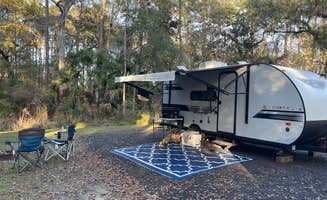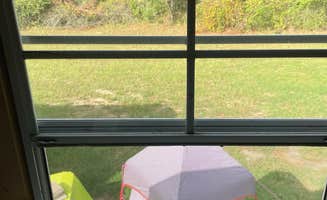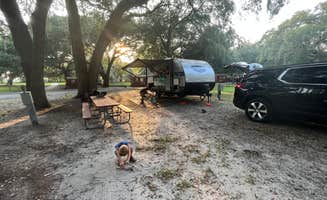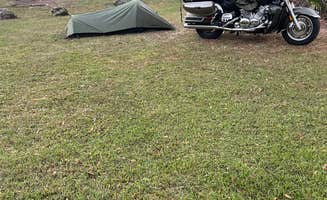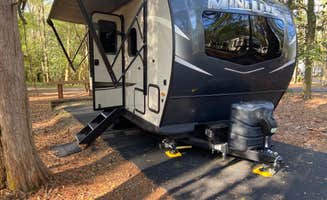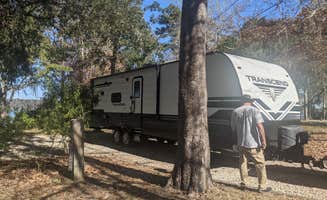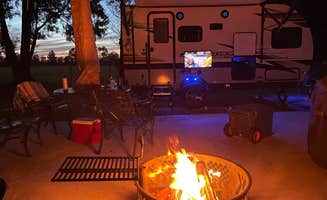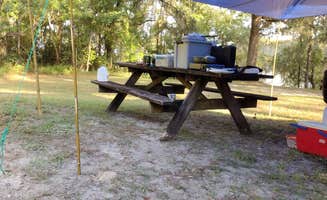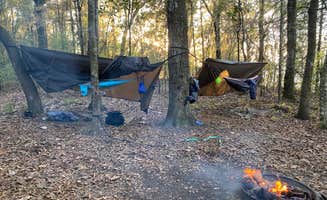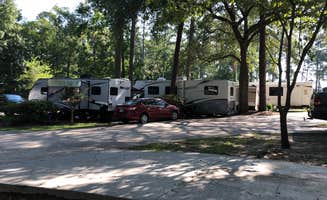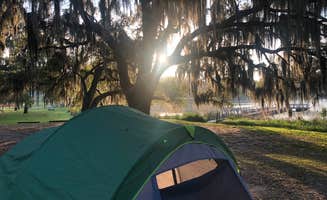Best Campgrounds near Monticello, FL
Monticello, Florida serves as a strategic base for travelers along Interstate 10, with several RV parks and campgrounds positioned for convenient overnight stays. Tallahassee East Campground (formerly KOA) offers year-round accommodations with full hookups for RVs and tent camping options. Just a quarter mile from I-10, A Stone's Throw RV Park in nearby Lamont provides easy access for travelers while maintaining reasonable rates. Madison RV Resort and Golf Course, located about 30 minutes east, offers a more destination-oriented experience with its 95 sites, 9-hole golf course, and amenities designed primarily for adults. The camping landscape ranges from basic overnight stops to more developed resorts with recreational facilities.
Road noise is a common consideration at campgrounds near the interstate, with several reviewers noting the highway sounds at properties close to I-10. As one camper at A Stone's Throw noted, "This park is literally 1/4 mile off of I-10 (you hear the traffic, which did not bother us)." Most RV parks in the area feature full hookups with 30/50 amp service, though site spacing varies considerably between properties. The region experiences typical North Florida weather patterns with hot, humid summers when insects can be problematic. Several campgrounds offer laundry facilities and clean bathhouses, making them suitable for longer stays. Cell service is generally reliable near the interstate corridor but may diminish at more remote locations.
Campers seeking more natural settings can explore Suwannee River State Park, located within driving distance, which receives consistently high ratings for its trails and river access. "We've been to about 10 state parks in Florida and we loved this one the most. It's very well maintained and super clean and the bathhouse looks new," reported one visitor. Dog-friendly accommodations are common throughout the area, with several parks offering designated pet areas. Madison RV Resort features a spacious fenced dog park spanning approximately two acres. Most campgrounds in the region cater primarily to RV travelers, though tent camping is available at select locations. Budget-conscious travelers will find options ranging from basic sites at Rocky's Campground (around $9 for primitive tent camping) to more upscale resorts with rates exceeding $40 per night.



